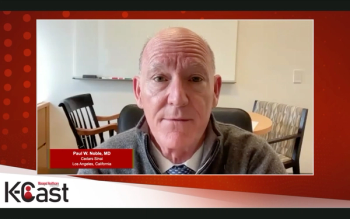
- MHE March 2023
- Volume 33
- Issue 03
No Prescription Needed. But Will Insurers Cover OTC Hearing Aids?
Commercial plans haven’t traditionally covered hearing aids.
About 48.1 million people in the U.S. over age 12 have some hearing loss. Yet insurance coverage for hearing aids is often nonexistent or minimal. Medicare specifically excludes coverage. Many private health and Medicare Advantage plans also leave payment to patients, with costs of $1,000 to $4,000 per prescription per hearing aid (one for each ear will be double the cost). There is now a less expensive option, thanks to the FDA’s final rule issued in August 2022 that allows the devices to be sold over the counter (OTC). They can be purchased with no prescription, no hearing examination and no audiologist fitting.
This move could save individuals up to $1,438 per hearing aid, almost $2,900 a pair, according to the FDA. With OTC options starting at $200 a pair, will insurance plans step up to add coverage?
Almost all Medicare Advantage individual plans have some coverage of hearing exams or hearing aids. Medicare Advantage, enrollees pay 79% of the hearing aid cost on average, according to ValuePenguin, an insurance comparison website for consumers.
Hearing aid coverage by large employers who are self-insured runs the gamut, says Kim Buckey, vice president of client services at Optavise, a benefit plan administration and support company. Most companies she works with in this category typically provide some coverage, ranging from a hearing exam if the person is ill or injured to hearing aids for any age. The few that cover hearing aids cap the amount provided. Small to midsize companies typically have hearing aid discounts for their employees as an add-on benefit to their vision benefit programs.
“One reason they weren’t really covered by many plans is that they’re considered elective,” says Buckey, joking that “just like glasses are elective unless you really want to see.” Yet there can be medical costs associated with untreated hearing loss. A JAMA Otolaryngology-Head & Neck Surgery study showed that untreated hearing loss was associated with $22,434 higher total health care costs over a
10-year period compared with costs for those without hearing loss.
Some states mandate hearing aid coverage, including 19 states requiring coverage for children and another five requiring coverage for children and adults. A few require that insurers with policies in those states offer employers the option to add hearing coverage.
It remains unclear how insurers will handle OTC hearing aid coverage. Buckey believes the price of OTC hearing aids will drop. Insurers are likely to take a wait-and-see approach to coverage as they gauge consumer demand.
UnitedHealthcare is evaluating how to best incorporate OTC hearing aids into commercial medical plans, potentially as early as mid-2023, said David Falda, CEO of UnitedHealthcare Hearing, in an email. “The goal is to build on existing discounts that may be available for prescription hearing aids, including through employer-
sponsored and Medicare Advantage plans,” he said. UnitedHealthcare commercial plans offer enrollees up to 50% off custom-programmed hearing aids. Members in most UnitedHealthcare Medicare Advantage plans in 2023 won’t have to pay for a hearing exam. Hearing aid coverage ranges from no out-of-pocket costs or to a per-device copay starting at $175.
Articles in this issue
almost 3 years ago
Nontraditional Players Are Getting Into Healthcare Gamealmost 3 years ago
Digital Health Took Off. How To Keep it Flyingalmost 3 years ago
The List of PBM Formulary Exclusions Got Longer in 2023almost 3 years ago
RSV Vaccine Development Is On the Comeback TrailNewsletter
Get the latest industry news, event updates, and more from Managed healthcare Executive.























